
The Timeless Wonders of Luxor City
Luxor City, often referred to as the world's greatest open-air museum, is a treasure trove of ancient history and culture. Nestled along the east bank of the Nile River, Luxor is home to some of Egypt's most iconic landmarks. The city is a gateway to the past, offering visitors an immersive experience into the grandeur of ancient Egyptian civilization. From the awe-inspiring Karnak Temple Complex to the majestic Luxor Temple, the city is dotted with architectural marvels that have stood the test of time. Each structure tells a story of the pharaohs who once ruled this land and their quest for immortality. As you wander through these ancient sites, you can't help but feel a profound connection to the past. Luxor is also the starting point for exploring the Valley of the Kings on the west bank of the Nile. This ancient burial ground is the final resting place of many pharaohs, including the famous Tutankhamun. The intricately decorated tombs offer a glimpse into the afterlife beliefs of ancient Egyptians. Beyond its historical significance, Luxor is a vibrant city with bustling markets, friendly locals, and delicious food. The city's modern amenities blend seamlessly with its rich heritage, making it a comfortable and fascinating destination for travelers.
Local tips in Luxor City
- Visit early morning or late afternoon to avoid the midday heat and crowds at major sites.
- Hire a knowledgeable guide to enhance your understanding of Luxor's historical significance.
- Carry plenty of water and wear comfortable shoes as you'll be doing a lot of walking.
- Don't miss the evening sound and light show at Karnak Temple for a unique perspective.
- Take a felucca ride on the Nile for a relaxing and scenic view of Luxor at sunset.
The Timeless Wonders of Luxor City
Luxor City, often referred to as the world's greatest open-air museum, is a treasure trove of ancient history and culture. Nestled along the east bank of the Nile River, Luxor is home to some of Egypt's most iconic landmarks. The city is a gateway to the past, offering visitors an immersive experience into the grandeur of ancient Egyptian civilization. From the awe-inspiring Karnak Temple Complex to the majestic Luxor Temple, the city is dotted with architectural marvels that have stood the test of time. Each structure tells a story of the pharaohs who once ruled this land and their quest for immortality. As you wander through these ancient sites, you can't help but feel a profound connection to the past. Luxor is also the starting point for exploring the Valley of the Kings on the west bank of the Nile. This ancient burial ground is the final resting place of many pharaohs, including the famous Tutankhamun. The intricately decorated tombs offer a glimpse into the afterlife beliefs of ancient Egyptians. Beyond its historical significance, Luxor is a vibrant city with bustling markets, friendly locals, and delicious food. The city's modern amenities blend seamlessly with its rich heritage, making it a comfortable and fascinating destination for travelers.
Iconic landmarks you can’t miss
Luxor Temple
Explore Luxor Temple, a majestic monument in Luxor, Egypt, showcasing millennia of ancient Egyptian history and architectural grandeur on the Nile's east bank.
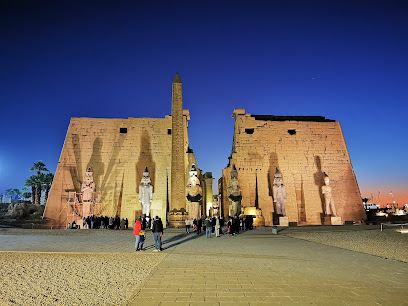
Karnak
Explore Karnak, the largest religious complex in the world, a city of temples showcasing millennia of Egyptian history and devotion.
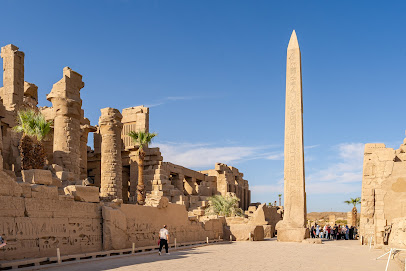
Luxor Museum
Discover the treasures of ancient Thebes at the Luxor Museum, showcasing exquisite artifacts from the heart of Egypt's New Kingdom.
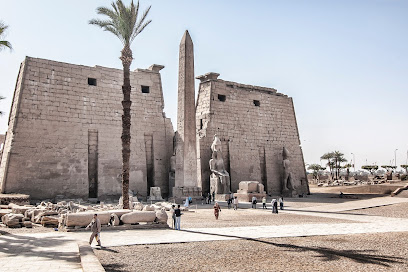
The Sphinx Avenue
Walk the path of pharaohs on Luxor's Sphinx Avenue, connecting Karnak and Luxor Temples through a stunning display of ancient artistry.
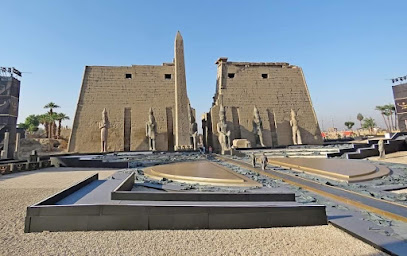
Avenue of the Rams
Explore the Avenue of the Rams in Luxor, a historical path lined with ram-headed sphinxes connecting Karnak and Luxor Temples, revealing ancient Egypt's wonders.
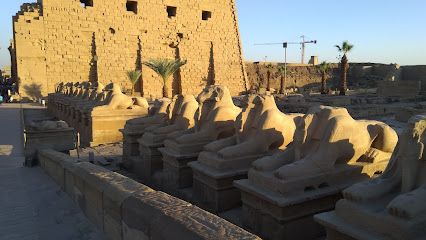
First Pylon Luxor Temple
Step through the First Pylon and journey into the heart of ancient Thebes, where colossal statues and intricate carvings whisper tales of pharaohs and gods.
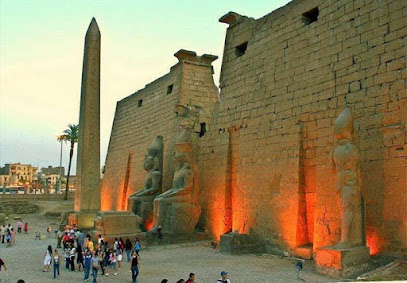
River Nile
Experience the majesty of the Nile, the world's longest river and the lifeblood of ancient and modern Egypt. Explore ancient temples and cruises along its waters.
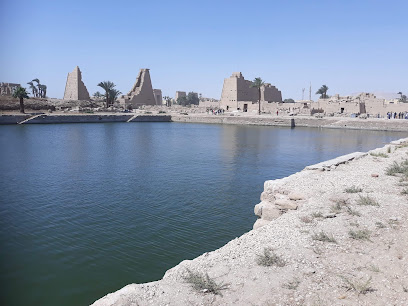
Remaining Luxor Obelisk
A towering testament to ancient Egyptian artistry, the Remaining Luxor Obelisk stands as a solitary sentinel at the entrance to Luxor Temple.
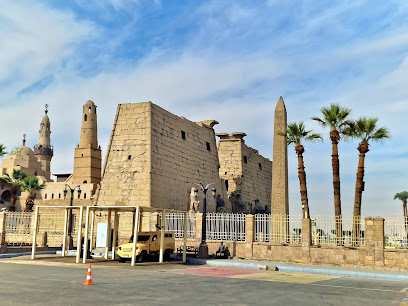
Luxor Egypt
Explore Luxor, the 'world's greatest open-air museum,' with ancient temples, tombs, and vibrant culture along the Nile River.
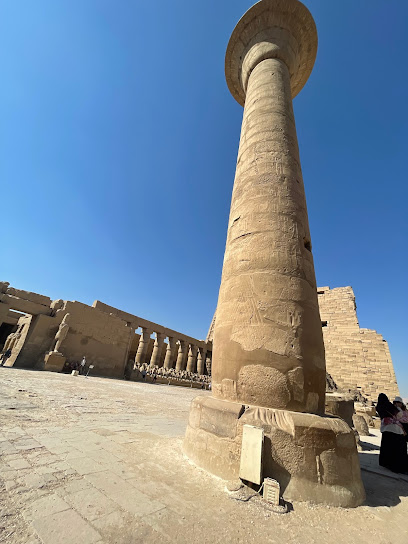
Luxor Sign
Discover Luxor's ancient wonders! The Luxor Sign: Your gateway to pharaohs, temples, and timeless Egyptian history and culture.
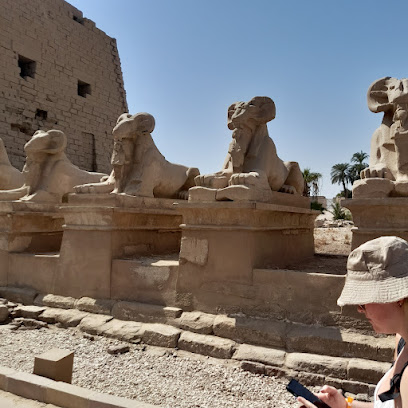
ميدان أبوالحجاج
Experience the vibrant heart of Luxor at Abu al-Haggag Square, where history, culture, and local life intertwine in a captivating Egyptian experience.
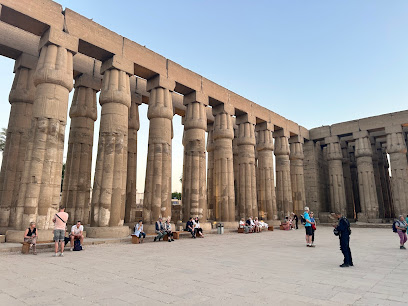
Ancient Luxor Quay
Step into history at Luxor Quay, where the echoes of ancient Thebes meet the timeless beauty of the Nile.
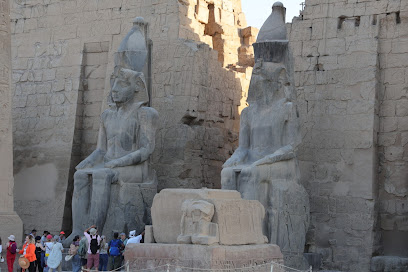
Unmissable attractions to see
Luxor Sign
Discover the Luxor Sign, an iconic symbol welcoming you to Egypt's ancient treasures and vibrant culture in Luxor City.
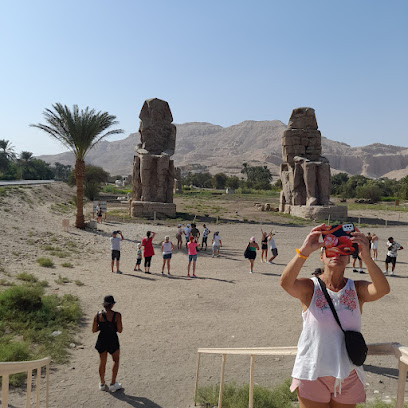
Barca solare del dio Rê
Experience the beauty and history of Luxor at Barca Solare del Dio Rîa, a mesmerizing attraction by the Nile River.
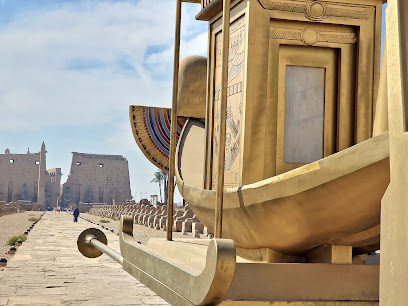
Egipt Luxor
Experience the magic of Luxor, Egypt, where ancient history meets vibrant culture along the banks of the Nile River.

Necropoli (cimitero)Nefermenul
Explore the ancient wonders of Necropoli Nefermenul in Luxor, where history and spirituality intertwine in a captivating necropolis.

Essential places to dine
PIZZA ROMA . IT
Experience authentic Italian cuisine at Pizza Roma in Luxor—where every bite takes you on a culinary journey through Italy.
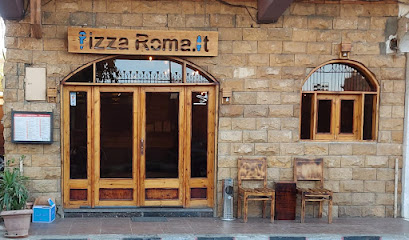
A Taste of India
Discover authentic Indian flavors at A Taste of India in Luxor – where every dish tells a story.
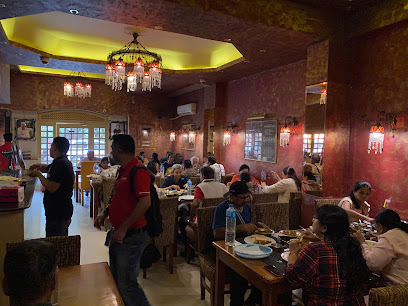
Oasis Palace
Experience exquisite dining at Oasis Palace in Luxor – where local flavors meet culinary artistry.
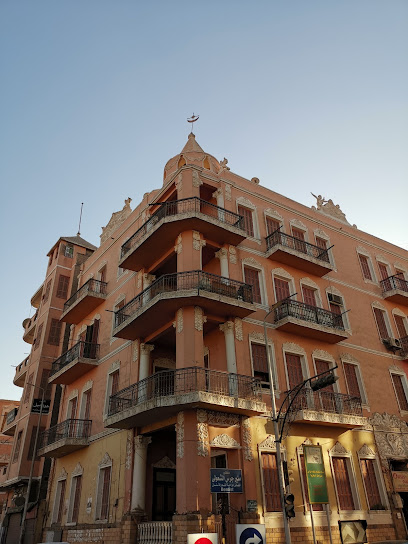
مطعم توت عنخ امون Tout Ankh Amoun Restaurant
Savor authentic Egyptian cuisine with stunning views of the Nile at Tout Ankh Amoun Restaurant in Luxor.
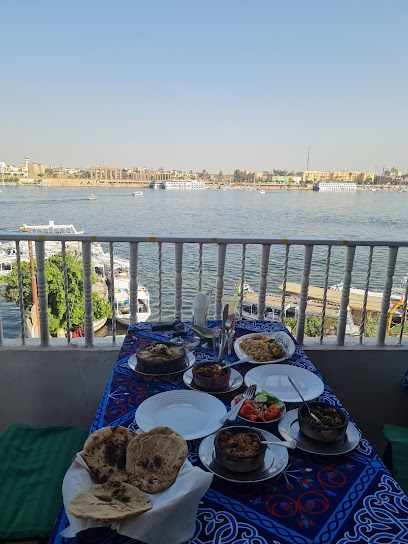
Jamboree Restaurant
Discover the vibrant flavors of Egypt at Jamboree Restaurant in Luxor—where tradition meets taste in an unforgettable dining experience.
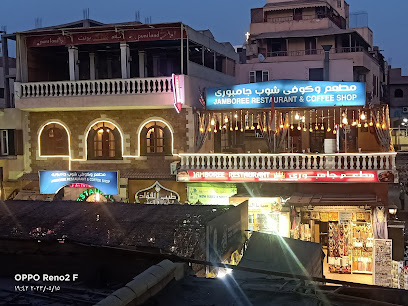
The Lantern Room Restaurant
Experience authentic Egyptian cuisine at The Lantern Room Restaurant in Luxor - a perfect blend of tradition and taste.
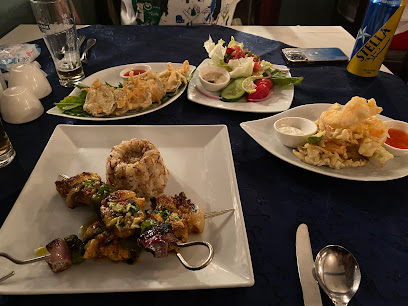
SunRise Bar & Restaurant Luxor
Discover the vibrant flavors of Egypt at SunRise Bar & Restaurant in Luxor—where culinary diversity meets lively entertainment.
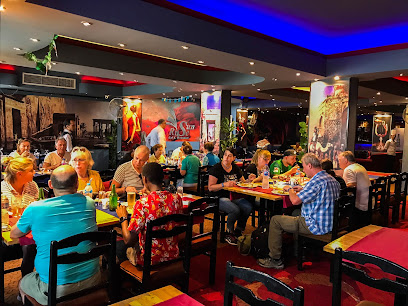
Georgian Nile View
Experience authentic cuisine with stunning views at Georgian Nile View in Luxor - where every meal is a celebration by the Nile.
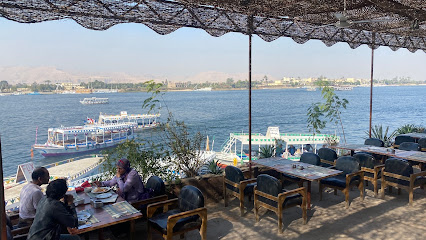
1886 Restaurant
Experience exquisite fine dining at 1886 Restaurant in Luxor with stunning views of the Nile River.
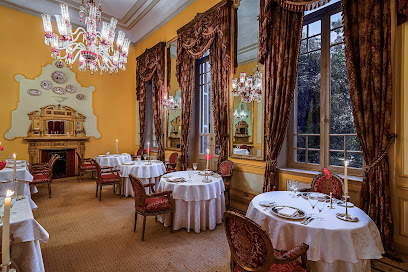
LA CORNICHE RESTAURANT
Experience exquisite Western cuisine at La Corniche Restaurant in Luxor, where breathtaking Nile views meet unforgettable flavors.
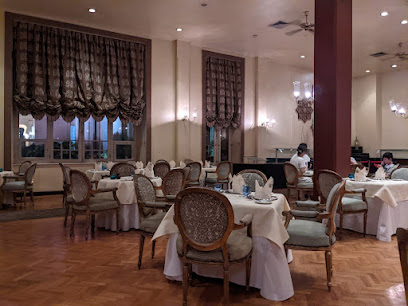
Markets, malls and hidden boutiques
Luxor Fruit and Vegetable Market
Discover the vibrant Luxor Fruit and Vegetable Market, a sensory delight filled with fresh produce and local flavors in the heart of Egypt.
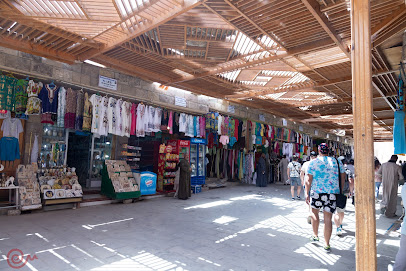
Ata Bazar
Explore Ata Bazar in Luxor for authentic souvenirs, unique antiques, and exquisite handicrafts that celebrate the rich culture of Egypt.
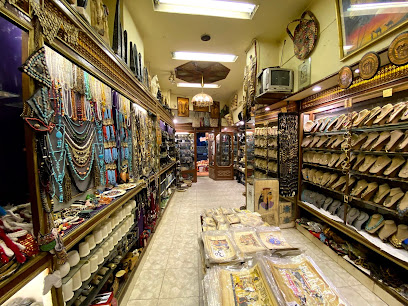
SHOP SANDOUK . HandCrafts-FairTrade
Experience the vibrant world of Egyptian handicrafts at Shop Sandouk, where every purchase supports local artisans and fair trade initiatives.
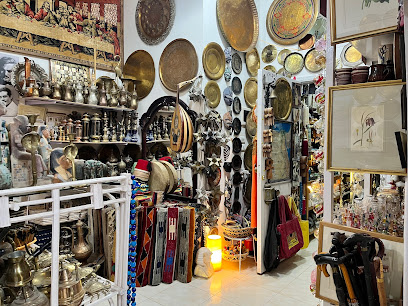
Nobles Art Gallery
Explore the exquisite collection of antiques and art at Nobles Art Gallery, a Luxor treasure showcasing Egypt's rich cultural heritage.
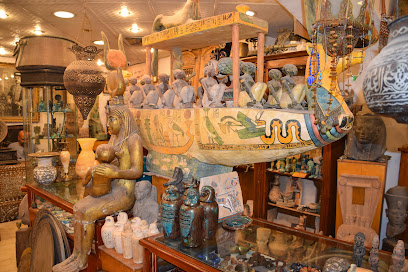
Old Shop
Explore Old Shop in Luxor, where exquisite jewelry, unique antiques, and stunning craftsmanship come together in a captivating shopping experience.

Gaddis & Co.
Explore Gaddis & Co. in Luxor, where unique Egyptian souvenirs and crafts await, reflecting the rich culture along the Nile.
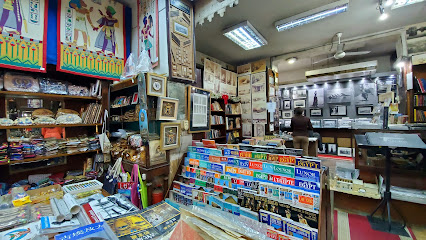
Hassle Free Shop
Explore the literary and antique treasures of Luxor at Hassle Free Shop, where every item tells a story.
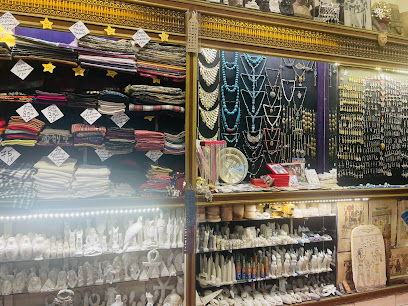
أبو وحيد للإستيراد والتصدير
Explore Abu Wahid Import and Export in Luxor for unique souvenirs, local crafts, and an unforgettable shopping experience that captures the essence of Egypt.
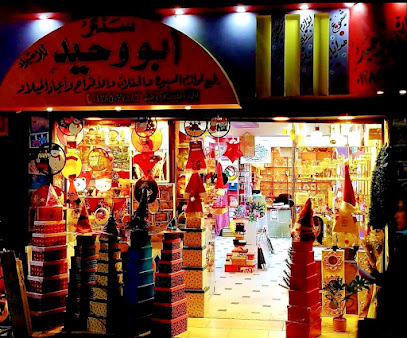
El Fashny Shop - متجر الفشني
Discover the charm of Luxor at El Fashny Shop, your go-to destination for authentic Egyptian gifts and souvenirs.
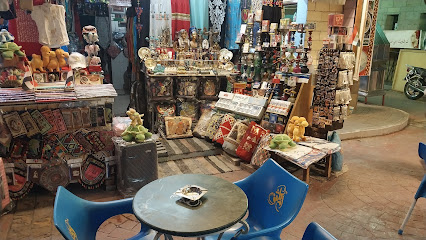
Pr-Ba Concept Store (Luxor)
Discover the essence of Luxor at Pr-Ba Concept Store, your destination for authentic Egyptian handicrafts and unique souvenirs.
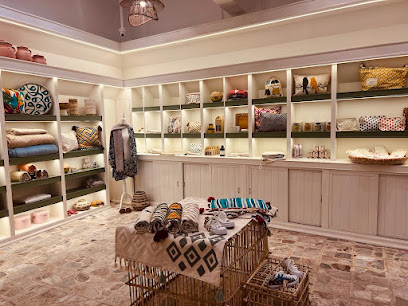
Essential bars & hidden hideouts
The King's Head Pub
Experience the vibrant local culture at The King's Head Pub, the perfect spot for relaxation and traditional Egyptian hospitality in Luxor.
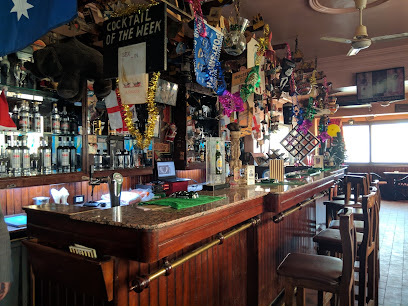
ميرفيس الأيرلندية بار Murphys Irish Bar
Discover the heart of Irish culture at Murphys Irish Bar in Luxor, where tradition meets vibrant entertainment and delightful cuisine.
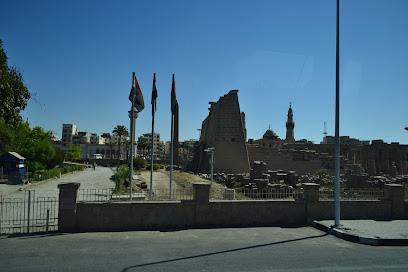
El-Gezira Hotel & Restaurant
Discover luxury and local charm at El-Gezira Hotel & Restaurant, a serene oasis on Luxor's West Bank with exquisite dining and live music.
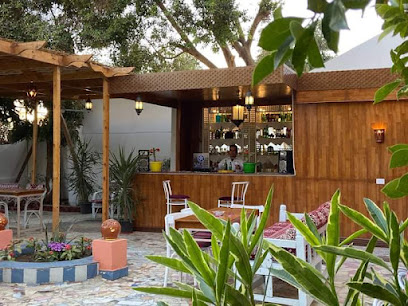
Bar & Byke Rent, West Luxor
Discover the perfect blend of relaxation and adventure at Bar & Byke Rent in Luxor, featuring refreshing drinks and bike rentals for exploring ancient wonders.
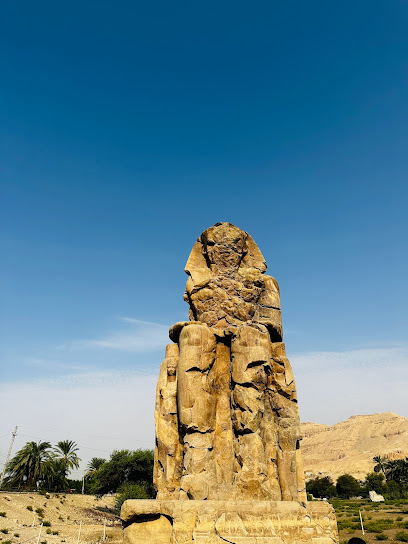
Royal Bar
Discover the vibrant ambiance of Royal Bar in Luxor, where stunning Nile views meet exquisite drinks and local culture.
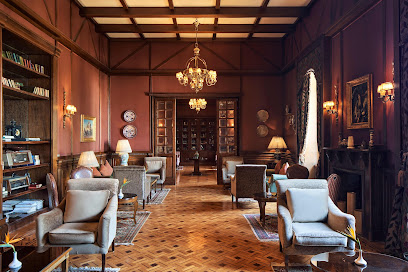
G.old
Experience vibrant nightlife at G.old, a premier bar in Luxor, Egypt, offering an extensive drink selection and a lively atmosphere.
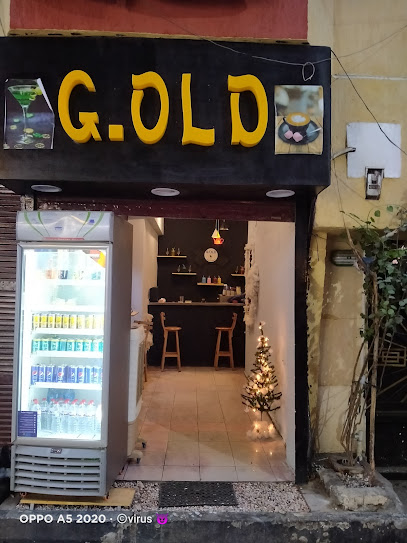
Nile Bar & Lounge
Experience the ultimate relaxation at Nile Bar & Lounge, where luxurious drinks meet stunning views of the Nile River in Luxor.
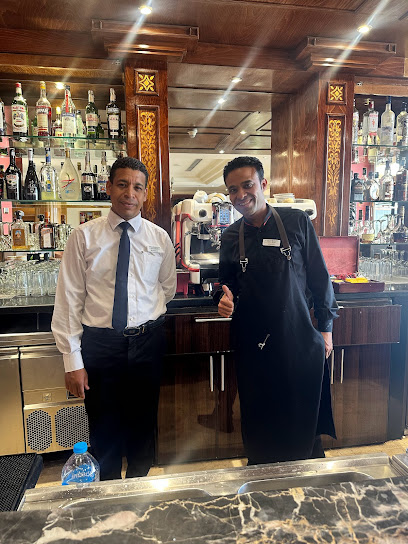
Wine palace
Discover the enchanting Wine Palace in Luxor, where local flavors and a vibrant atmosphere meet for a memorable evening.
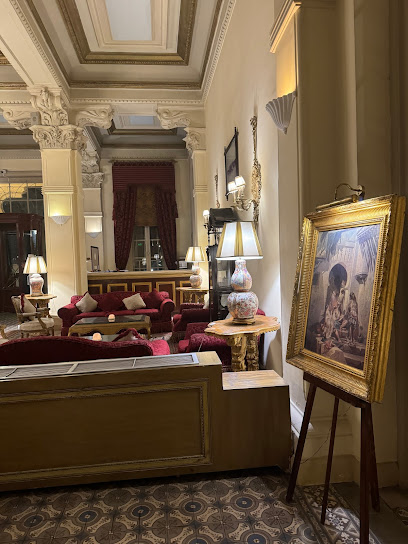
حسني لطيف سلامة
Experience the vibrant nightlife of Luxor at حسني لطيف سلامة, where local charm meets refreshing drinks in a lively atmosphere.
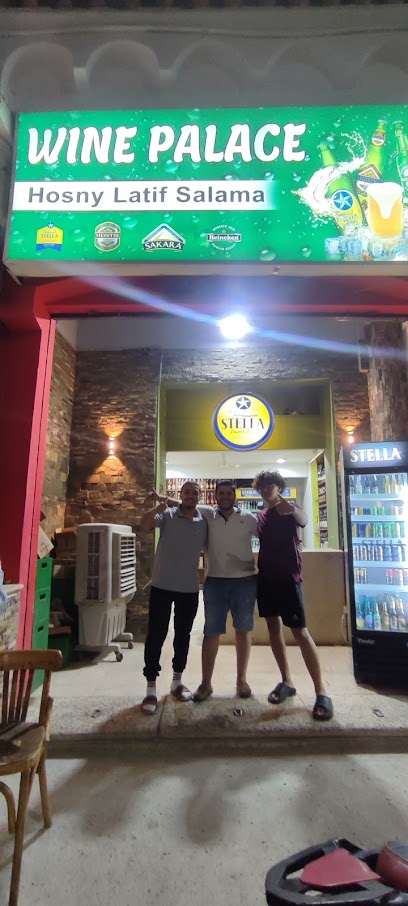
مصطفى تاكس
Discover the vibrant nightlife at مصطفى تاكس, a lively bar in Luxor offering refreshing drinks and a welcoming atmosphere for travelers.

Local Phrases
-
- Helloمرحبا
[Marhaba] - Goodbyeوداعا
[Wadaa'an] - Yesنعم
[Naam] - Noلا
[La] - Please/You're welcomeمن فضلك
[Min fadlak] - Thank youشكرا
[Shukran] - Excuse me/Sorryعذرا
[A'dhra] - How are you?أزيك؟
[Ezzayak?] - Fine. And you?تمام. وأنت؟
[Tamam. Wa anta?] - Do you speak English?هل تتكلم الإنجليزية؟
[Hal tatakallam al-ingliziya?] - I don't understandأنا لا أفهم
[Ana la afham]
- Helloمرحبا
-
- I'd like to see the menu, pleaseأود أن أرى القائمة، من فضلك
[Awad an ara al-qa'ima, min fadlak] - I don't eat meatأنا لا آكل لحم
[Ana la aakul lahme] - Cheers!في صحتك!
[Fi sahtak!] - I would like to pay, pleaseأود أن أدفع، من فضلك
[Awad an adfa', min fadlak]
- I'd like to see the menu, pleaseأود أن أرى القائمة، من فضلك
-
- Help!النجدة!
[Al-najda!] - Go away!اذهب بعيدا!
[Idhab ba'eedan!] - Call the Police!اتصل بالشرطة!
[Itsal bialshurta!] - Call a doctor!اتصل بالطبيب!
[Itsal bialtabeeb!] - I'm lostضاعت طريقي
[Daa'at tareeqi] - I'm illأنا مريض
[Ana mareed]
- Help!النجدة!
-
- I'd like to buy...أريد أن أشتري...
[Arid an ashtari...] - I'm just lookingأنا فقط أتفرج
[Ana faqat atfarrag] - How much is it?بكم؟
[Bikam?] - That's too expensiveهذا غالي جدا
[Hatha ghali jiddan] - Can you lower the price?هل يمكنك خفض السعر؟
[Hal yumkinuk khafeed al-sa'ar?]
- I'd like to buy...أريد أن أشتري...
-
- What time is it?كم الساعة؟
[Kam al-saa'a?] - It's one o'clockالساعة الواحدة
[Al-saa'a al-wahida] - Half past (10)النصف بعد العاشرة
[Al-nisf ba'd al-'ashira] - Morningصباح
[Sabaah] - Afternoonمساء
[Masaa] - Eveningمساء
[Masaa] - Yesterdayأمس
[Ams] - Todayاليوم
[Al-yawm] - Tomorrowغدا
[Ghadan] - 1واحد
[Wahid] - 2اثنين
[Ithnayn] - 3ثلاثة
[Thalatha] - 4أربعة
[Arba'a] - 5خمسة
[Khamsa] - 6ستة
[Sitta] - 7سبعة
[Sab'a] - 8ثمانية
[Thamania] - 9تسعة
[Tis'a] - 10عشرة
[Ashara]
- What time is it?كم الساعة؟
-
- Where's a/the...?أين...؟
[Ayna...?] - What's the address?ما هو العنوان؟
[Ma huwa al-anaan?] - Can you show me (on the map)?هل يمكنك أن تريني (على الخريطة)؟
[Hal yumkinuk an tureeni (ala al-khartat)?] - When's the next (bus)?متى الحافلة القادمة؟
[Mata al-hafla al-qadima?] - A ticket (to ....)تذكرة (إلى...)
[Tathkira (ila...)]
- Where's a/the...?أين...؟
History of Luxor City
-
Luxor City, known as Thebes in ancient times, served as the capital of Egypt during the New Kingdom period (c. 1550-1070 BCE). It was a center of power and culture, home to the pharaohs and a thriving population. The city was adorned with magnificent temples and monuments, including the Karnak Temple Complex, which is one of the largest religious structures ever built.
-
Adjacent to Luxor City lies the Valley of the Kings, the burial site of many New Kingdom pharaohs, including Tutankhamun and Ramses the Great. This necropolis was established in the 16th century BCE and reflects the wealth and artistic achievements of ancient Egypt. The elaborate tombs, with their intricate wall paintings and hieroglyphs, provide invaluable insights into ancient Egyptian beliefs about the afterlife.
-
Following the conquests of Alexander the Great, Luxor (Thebes) became part of the Ptolemaic Kingdom in the 4th century BCE. This era saw a blend of Greek and Egyptian cultures, with the construction of new temples and monuments that incorporated both architectural styles. The Temple of Luxor, built during this time, stands as a testament to the fusion of these cultures.
-
With the arrival of Islam in the 7th century CE, Luxor underwent significant changes. The establishment of mosques and Islamic architecture began to shape the city's landscape. This period also saw the rise of trade and commerce, with Luxor becoming an important stop for pilgrims traveling to Mecca, which contributed to its economic development.
-
In the 19th and 20th centuries, Luxor emerged as a key destination for tourists intrigued by its ancient history. The establishment of the Luxor Museum in 1975 further enhanced the city's reputation as a center for Egyptology. Ongoing archaeological excavations continue to uncover new finds, drawing historians and travelers alike to explore the rich tapestry of Luxor's past.
Luxor City Essentials
-
Luxor City is easily accessible from other neighborhoods within Luxor. If you're arriving by air, Luxor International Airport is about 6 kilometers east of the city center. You can take a taxi or arrange for a hotel shuttle. If you're coming from nearby towns, the local bus service connects Luxor City with places like Karnak and the West Bank. Additionally, there are trains available from Cairo to Luxor, which stop at Luxor Station, right in the city.
-
Luxor City is compact, and many attractions are within walking distance. Taxis and microbuses are available for longer distances, with taxis being the most convenient option; always negotiate the fare beforehand. Bicycle rentals are also popular among tourists, providing a leisurely way to explore the city. For trips across the Nile to the West Bank, local ferries operate regularly and are an enjoyable experience.
-
Luxor City is generally safe for tourists, but it is advisable to exercise caution, especially in crowded areas and at night. The area around Luxor Temple and Karnak can be busy, so remain vigilant of your belongings. Petty crimes like pickpocketing can occur, particularly in tourist-heavy spots. Avoid isolated areas after dark, and always be aware of your surroundings.
-
In case of an emergency, dial 122 for police assistance or 123 for medical emergencies. The Luxor General Hospital is a primary medical facility in the city. It is advisable to have travel insurance covering medical needs. Pharmacies are widely available and can provide over-the-counter medications for minor ailments.
-
Fashion: Do dress modestly, especially when visiting temples and religious sites. Avoid revealing clothing. Religion: Do respect local customs; cover your shoulders and knees in religious settings. Public Transport: Do be courteous and offer your seat to the elderly. Don't eat or drink on public transport. Greetings: Do greet locals with a friendly 'Salam' (hello). A handshake is common, but be mindful of personal space. Eating & Drinking: Do try local dishes and accept invitations for tea or coffee. Don't refuse hospitality, as it's considered impolite.
-
To experience Luxor City like a local, visit the bustling souks (markets) where you can buy spices, handicrafts, and fresh produce. Engage with the friendly locals, who often enjoy sharing stories about their culture and history. Don't miss the early morning hot air balloon rides for breathtaking views of the Valley of the Kings. Additionally, dining at local eateries rather than tourist hotels will provide a more authentic taste of Egyptian cuisine.
Nearby Cities to Luxor City
-
Things To Do in Sohag
-
Things To Do in Aswan
-
Things To Do in Hurghada
-
Things To Do in El Gouna
-
Things To Do in Asyut
-
Things To Do in Marsa Alam
-
Things To Do in Sharm El Sheikh
-
Things To Do in Minya
-
Things To Do in Dahab
-
Things To Do in Beni Suef
-
Things To Do in Suez
-
Things To Do in Eilat
-
Things To Do in Aqaba
-
Things To Do in Tabuk
-
Things To Do in Cairo













